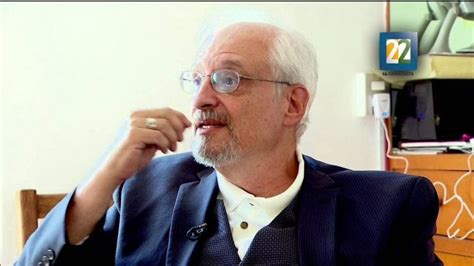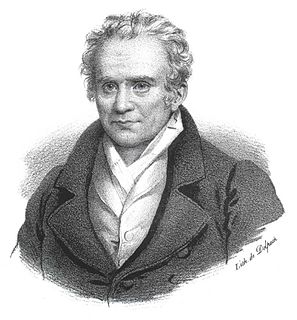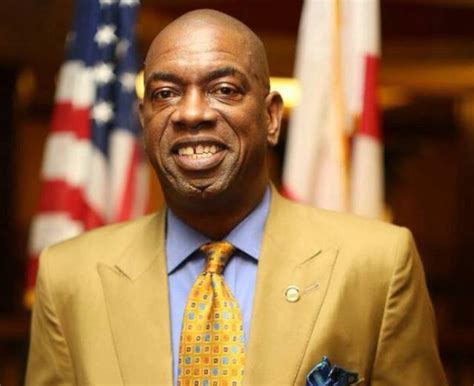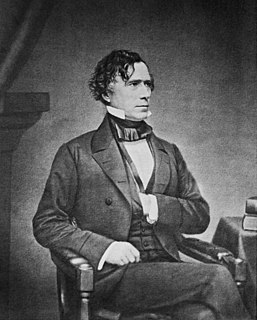Top 584 Namely Quotes & Sayings - Page 10
Explore popular Namely quotes.
Last updated on April 14, 2025.
The physical universe that you see is all in your mind. When you turn your mind off, or become unconscious, the physical universe, for you, disappears. Then, when you awaken your consciousness, the universe reappears magically. Quite simple really - no thoughts on your part, no physical world. As Walt Whitman succinctly stated: "The whole theory of the universe is directed unerringly to one single individual - namely to You." Without your mind to process it, the universe simply disappears into nothingness.
I have left the obvious, essential fact to this point, namely, that it is the Russian Armies who have done the main work in tearing the guts out of the German army. In the air and on the oceans we could maintain our place, but there was no force in the world which could have been called into being, except after several more years, that would have been able to maul and break the German army unless it had been subjected to the terrible slaughter and manhandling that has fallen to it through the strength of the Russian Soviet Armies.
In all human love it must be realized that every man promises a woman, and every woman promises a man that which only God alone can give, namely, perfect happiness. One of the reasons why so many marriages are shipwrecked is because as the young couple leave the altar, they fail to realize that human feelings tire and the enthusiasm of the honeymoon is not the same as the more solid happiness of enduring human love. One of the greatest trials of marriage is the absence of solitude. In the first moments of human love, one does not see the little hidden deformities which later on appear.
There are three things that are the motives of choice and three that are the motives of avoidance; namely, the noble, the expedient, and the pleasant, and their opposites, the base, the harmful, and the painful. Now in respect of all these the good man is likely to go right and the bad to go wrong, but especially in respect of pleasure; for pleasure is common to man with the lower animals, and also it is a concomitant of all the objects of choice, since both the noble and the expedient appear to us pleasant.
If men were able to be convinced that art is a precise advance knowledge of how to cope with the psychic and social consequences of the next technology, would they all become artist? Or would they begin a careful translation of new art forms into social navigation charts? I am curious to know what would happem if art were suddenly seen for what it is, namely, exact information of how to rearrange one's psyche in order to anticipate the next blow from our own extended faculties.
The intelligent have a right over the ignorant, namely, the right of instructing them. The right punishment of one out of tune, isto make him play in tune; the fine which the good, refusing to govern, ought to pay, is, to be governed by a worse man; that his guards shall not handle gold and silver, but shall be instructed that there is gold and silver in their souls, which will make men willing to give them every thing which they need.
You might say that, if citizens are acting for the right reasons in a constitutional regime, then regardless of their comprehensive doctrines they want every other citizen to have justice. So you might say they're all working together to do one thing, namely to make sure every citizen has justice. Now that's not the only interest they all have, but it's the single thing they're all trying to do. In my language, they've striving toward one single end, the end of justice for all citizens.
The following proposition seems to me in a high degree probable—namely, that any animal whatever, endowed with well-marked social instincts, the parental and filial affections being here included, would inevitably acquire a moral sense or conscience, as soon as its intellectual powers had become as well, or nearly as well developed, as in man. For, firstly, the social instincts lead an animal to take pleasure in the society of its fellows, to feel a certain amount of sympathy with them, and to perform various services for them.
Al Gore has a hit movie called 'An Inconvenient Truth.' I have an inconvenient truth for him: you're still not the president. ... This past weekend, Al Gore's movie, 'An Inconvenient Truth,' earned more per screen than any film in the country. ... I dare say Gore's movie is the highest grossing PowerPoint presentation in history. ... Global warming: Can we live with it? ... It is time we did something, namely resign ourselves to doing nothing [on screen: Follow Congress' Lead]. ... For instance, when sea levels rise, we'll just build levees [on screen: Worked for New Orleans]
The fact that Science walks forward on two feet, namely theory and experiment, is nowhere better illustrated than in the two fields for slight contributions to which you have done me the great honour of awarding the the Nobel Prize in Physics for the year 1923. Sometimes it is one foot that is put forward first, sometimes the other, but continuous progress is only made by the use of both-by theorizing and then testing, or by finding new relations in the process of experimenting and then bringing the theoretical foot up and pushing it on beyond, and so on in unending alterations.
There isn't much point arguing about the word "libertarian." It would make about as much sense to argue with an unreconstructed Stalinist about the word "democracy" - recall that they called what they'd constructed "peoples' democracies." The weird offshoot of ultra-right individualist anarchism that is called "libertarian" here happens to amount to advocacy of perhaps the worst kind of imaginable tyranny, namely unaccountable private tyranny. If they want to call that "libertarian," fine; after all, Stalin called his system "democratic." But why bother arguing about it?
You can cruise the world's millions of omega-3 Web sites without encountering any reflections about where these prized fatty acids are coming from and at what social or environmental cost. For some people, what goes into their bodies has become an overriding obsession. Perhaps we are witnessing a successor to the Me Generation--namely, the Don't Care About the Rest of the World as Long as I Have a Spa and Some Omega-3 Fatty Acids Generation. Let's call it the Omega-3 Generation for short. Or is that thought just too depressing?
Physiologically, man in the normal use of technology (or his variously extended body) is perpetually modified by it and in turn finds ever new ways of modifying his technology. Man becomes, as it were, the sex organs of the machine world, as the bee of the plant world, enabling it to fecundate and to evolve ever new forms. The machine world reciprocates man's love by expediting his wishes and desires, namely, in providing him with wealth.
The raw fruits of the earth were made for human sustenance. Even the white tails of rabbits, according to some theologians, have a purpose, namely to make it easier for sportsmen to shoot them. There are, it is true, some inconveniences: lions and tigers are too fierce, the summer is too hot, and the winter too cold. But these things only began after Adam ate the apple; I before that, all animals were vegetarians, and the season was always spring. If only Adam had been content with peaches and nectarines, grapes and pears and pineapples, these blessings would still be ours.
Here is what Hillary Clinton said. Crooked Hillary said, "You know, when we talk about the Supreme Court" - fake smile - "it really raises the central issue in this election, namely what kind of country are we going to be." Well, she's right about that, actually, but not in the way she means. "What kind of opportunities will we provide our citizens." The Supreme Court's not about that. Supreme Court is the law, and their cases are not about opportunities being provided for our citizens.
God loves human beings. God loves the world. Not an ideal human, but human beings as they are; not an ideal world, but the real world. What we find repulsive in their opposition to God, what we shrink back from with pain and hostility, namely, real human beings, the real world, this is for God the ground of unfathomable love.
Reasoning is compared to understanding as movement is to rest, or acquisition to possession.... Since movement always proceeds from something immovable, and ends in something at rest, hence it is that human reasoning, in the order of inquiry and discovery, proceeds from certain things absolutely understood--namely, the first principles; and, again, in the order of judgment, returns by analysis to first principles, in the light of which it examines what it has found. Now it is clear that rest and movement are not to be referred to different powers, but to one and the same.
At the root of all our disobedience are particular ways in which we continue to seek control of our lives through systems of works-righteousness. The way to progress as a Christian is to continually repent and uproot these systems the same way we become Christians, namely by the vivid depiction (and re-depiction) of Christ’s saving work for us, and the abandoning of self-trusting efforts to complete ourselves. We must go back again and again to the gospel of Christ-crucified, so that our hearts are more deeply gripped by the reality of what he did and who we are in him.
Popular music of the last 50 years has failed to keep in step with advances in musical theater, namely Stephen Sondheim. But the two have grown apart so that popular music is based more than ever on a rhythmic grid that is irrelevant in musical theater. In popular music, words matter less and less. Especially now that it's so international, the fewer words the better. While theater music becomes more and more confined to a few blocks in midtown.
It can be set down as a broad, general principle that we cannot indulge in idleness and abundance during both the first and second half of our life. Study, application, industry, enthusiasm while we are young usually enable us to enjoy life when we grow older. But unless we toil and strive and earn all we can in the first half, the second half of our life is liable to bring disappointment, discomfort, distress. The time to put forth effort is when we are most able to do it, namely, in the years of our greatest strength. The law of compensation hasn't ceased to function.
In the dog two conditions were found to produce pathological disturbances by functional interference, namely, an unusually acute clashing of the excitatory and inhibitory processes, and the influence of strong and extraordinary stimuli. In man precisely similar conditions constitute the usual causes of nervous and psychic disturbances. Different conditions productive of extreme excitation, such as intense grief or bitter insults, often lead, when the natural reactions are inhibited by the necessary restraint, to profound and prolonged loss of balance in nervous and psychic activity.
People of good character are not all going to come down on the same side of difficult political and social issues. Good people - people of character and moral literacy - can be conservative, and good people can be liberal. We must not permit our disputes over thorny political questions to obscure the obligation we have to offer instruction to all our young people in the area in which we have, as a society, reached a consensus: namely, on the importance of good character, and some of its pervasive particulars.
...there are two (inter alia) two ways of ruining a society - namely, letting the market "be the sole director of the fate of human beings," and allowing technology to permeate every aspect of our lives. In the United States, both of these developments have converged, creating a huge chasm between rich and poor and pushing us over the edge into a kind of antisociety... While these developments have been widely hailed as the dawn of a golden age, the likelihood is that they actually amount to a death knell, the beginning of the end of the American empire.
The State which would provide everything, absorbing everything into itself, would ultimately become a mere bureaucracy incapable of guaranteeing the very thing which the suffering person—every person—needs: namely, loving personal concern. We do not need a State which regulates and controls everything, but a State which, in accordance with the principle of subsidiarity, generously acknowledges and supports initiatives arising from the different social forces and combines spontaneity with closeness to those in need. The Church is one of those living forces.
What differentiates time from space is that time does have a direction. In that sense it is different from space. I think that's certainly true that whereas spatial dimensions don't have direction or an arrow, time does. It runs from past to future. But I see that arrow of time as rooted in a deeper metaphysical reality, namely the reality of temporal becoming - of things coming to be and passing away. That is why time has this arrow. But it's not sufficient to simply say that time and space are distinct because time has a direction. The question will be: why does it have a direction?
...the mass media. What are they? They're huge corporations, massive corporations, linked up with even bigger corporations. They sell audiences to other businesses, namely advertisers. So when you turn on the television set, CBS doesn't make any money. They make money from the advertisers. You're the product that they're selling, and the same is true of the daily newspaper. They're huge corporations, selling audiences, potential consumers, to other businesses, all linked up closely to the government, especially the big media. What picture of the world do you expect them to present?
One of the most powerful concepts, one which is a sure cure for lack of confidence, is the thought that God is with you and helping you. This is one of the simplest teachings in religion, namely, that Almighty God will be your companion, will stand by you, help you, and see you through. No other idea is so powerful in developing self-confidence as this simple belief when practiced. To practice it simply affirm "God is with me; God is helping me; God is guiding me." Spend several minutes each day visualizing his presence. Then practice believing that affirmation.
I could give you absolutely sterling advice on how to avoid writing, how when you run out of things to do other than going to your desk and writing, when every closet is reorganized and you've called your oldest living relative twice in one day to see what she's up to and there isn't an unanswered e-mail left on your computer or you simply can't bear to answer another one and there is no dignity, not a drop left, in any further evasion of the task at hand, namely writing, well, you can always ask your dentist for a root canal or have an accident in the bathtub instead.
The Void is not being, but not being cannot be, ergo the Void cannot be. The reasoning was sound, because it denied the Void while granting that it could be conceived. In fact, we can quite easily conceive things that do not exist. Can a chimera, buzzing in the Void, devour second intentions? No, because chimeras do not exist, in the Void no buzzing can be heard, and intentions are mental things - an intended pear does not nourish us. And yet I can think of a chimera even if it is chimerical, namely, if it is not. And the same with the Void.
The state of mind of the photographer creating is a blank. I might add that this condition exists only at special times, namely when looking for pictures. -Something keeps him from falling off curbs, down open manholes, into bumpers of skidding trucks while in this condition but goes off duty at other times. . . . This is a very special kind of blank. A very active state of mind really, it is a very receptive state. . .
Descriptive geometry has two objects: the first is to establish methods to represent on drawing paper which has only two dimensions,-namely, length and width,-all solids of nature which have three dimensions,-length, width, and depth,-provided, however, that these solids are capable of rigorous definition.
The second object is to furnish means to recognize accordingly an exact description of the forms of solids and to derive thereby all truths which result from their forms and their respective positions.
O thou who art able to write a Book, which once in the two centuries or oftener there is a man gifted to do, envy not him whom they name City-builder, and inexpressibly pity him whom they name Conqueror or City-burner! Thou too art a Conqueror and Victor; but of the true sort, namely over the Devil: thou too hast built what will outlast all marble and metal, and be a wonder-bringing City of the Mind, a Temple and Seminary and Prophetic Mount, whereto all kindreds of the Earth will pilgrim.
The heavenly Father Whom we worship is the Father of the Truth, namely, of the only-begotten Son, and has the Spirit of Truth, the Holy Spirit, and those who worship Him in these Two do so because they believe in these Persons and act through Them. For the Apostle tells us that it is through the Spirit that we worship and pray (cf. Rom. 8:26), and God's only-begotten Son says, 'No man cometh unto the Father, but by Me' (John 14:6).
Love makes us instinctively reach out to God and other people. Lust, on the other hand, is anything but godly and celebrates self-indulgence. Love comes with open hands and open heart; lust comes with only an open appetite. These are just some of the reasons that prostituting the true meaning of love-either with imagination or another person-is so destructive. It destroys that which is second only to our faith in God-namely, faith in those we love. It shakes the pillars of trust upon which present-or future-love is built, and it takes a long time to rebuild that trust when it is lost.
If every day a man takes orders in silence from an incompetent superior, if every day he solemnly performs ritual acts which he privately finds ridiculous, if he unhesitatingly gives answers to questionnaires which are contrary to his real opinions and is prepared to deny his own self in public, if he sees no difficulty in feigning sympathy or even affection where, in fact, he feels only indifference or aversion, it still does not mean that he has entirely lost the use of one of the basic human senses, namely, the sense of humiliation.
This much I can say with definiteness - namely, that there is no scientific basis for the denial of religion - nor is there in my judgment any excuse for a conflict between science and religion, for their fields are entirely different. Men who know very little of science and men who know very little of religion do indeed get to quarreling, and the onlookers imagine that there is a conflict between science and religion, whereas the conflict is only between two different species of ignorance.
In your 20s, crises tend to be about whether you are making the correct decisions for the rest of your life, namely in your job and relationship. In your 30s, work-related issues and break-ups feature prominently. In your 40s, for women bereavement is often an issue. For men, it is still to do with their job but it has moved to "Holy crap, I've got a lot to do". In your 50s, you get features of both early and later life crises - bereavement and ill health. And that continues in your 60s, with retirement-related issues and heightened awareness of mortality.
The constitutionality and propriety of the Federal Government assuming to enter into a novel and vast field of legislation, namely, that of providing for the care and support of all those ... who by any form of calamity become fit objects of public philanthropy. ... I cannot find any authority in the Constitution for making the Federal Government the great almoner of public charity throughout the United States. To do so would, in my judgment, be contrary to the letter and spirit of the Constitution and subversive of the whole theory upon which the Union of these States is founded.
There is a principle of human affairs that goes back millennia, which is that you don't look in the mirror. You can trace this principle back to the Bible. The designated intellectuals of that time are called prophets, which is a mistranslation of a Hebrew word, but they were basically intellectuals, giving geopolitical analysis, criticizing the moral practice of leadership, etc. Now, these people were not treated very nicely. There were other intellectuals who were treated nicely, namely those who centuries later came to be called false prophets. These were the flatterers of the court.
It cannot be too strongly asserted that the insistence on blind, unreasoning faith is due mainly to the maintenance of a subject-matter upon which there was no knowledge, namely the 'other world'; and that this basis was assumed because of early man's preoccupation with death. It is, unfortunately, quite possible to believe a thing which is contradicted by facts, especially if the facts are not generally known; but if the whole position on which we rested our religions had been visibly opposed by what we did know, even the unthinking masses would, in time, have noticed it.
"There is one basis of science," says Descartes, "one test and rule of truth, namely, that whatever is clearly and distinctly conceived is true." A profound psychological mistake. It is true only of formal logic, wherein the mind never quits the sphere of its first assumptions to pass out into the sphere of real existences; no sooner does the mind pass from the internal order to the external order, than the necessity of verifying the strict correspondence between the two becomes absolute. The Ideal Test must be supplemented by the Real Test, to suit the new conditions of the problem.
So I think the Guru can be a delusion. But everything can be deluding. The thing central about the Guru in the West is that he represents an alien principle of the spirit, namely, that you don't follow your own path; you follow a given path. And that's totaly contrary to the Western Spirit! Our spirituality is of the individual quest, individual realization- authenticity in your life out of your own center. So you must take the message of the East, assimilate it to your own dimension and to your own thrust of life, and not get pulled off track.
Indeed, nothing more beautifully simplifying has ever happened in the history of science than the whole series of discoveries culminating about 1914 which finally brought practically universal acceptance to the theory that the material world contains but two fundamental entities, namely, positive and negative electrons, exactly alike in charge, but differing widely in mass, the positive electron-now usually called a proton-being 1850 times heavier than the negative, now usually called simply the electron.
It isn't possible to kill part of your “self” unless you kill yourself first. If you ruin your conscious personality, the so-called ego-personality, you deprive the self of its real goal, namely to become real itself. The goal of life is the realization of the self. If you kill yourself you abolish that will of the self to become real, but it may arrest your personal development inasmuch it is not explained. You ought to realise that suicide is murder, since after suicide there remains a corpse exactly as with any ordinary murder. Only it is yourself that has been killed.






































